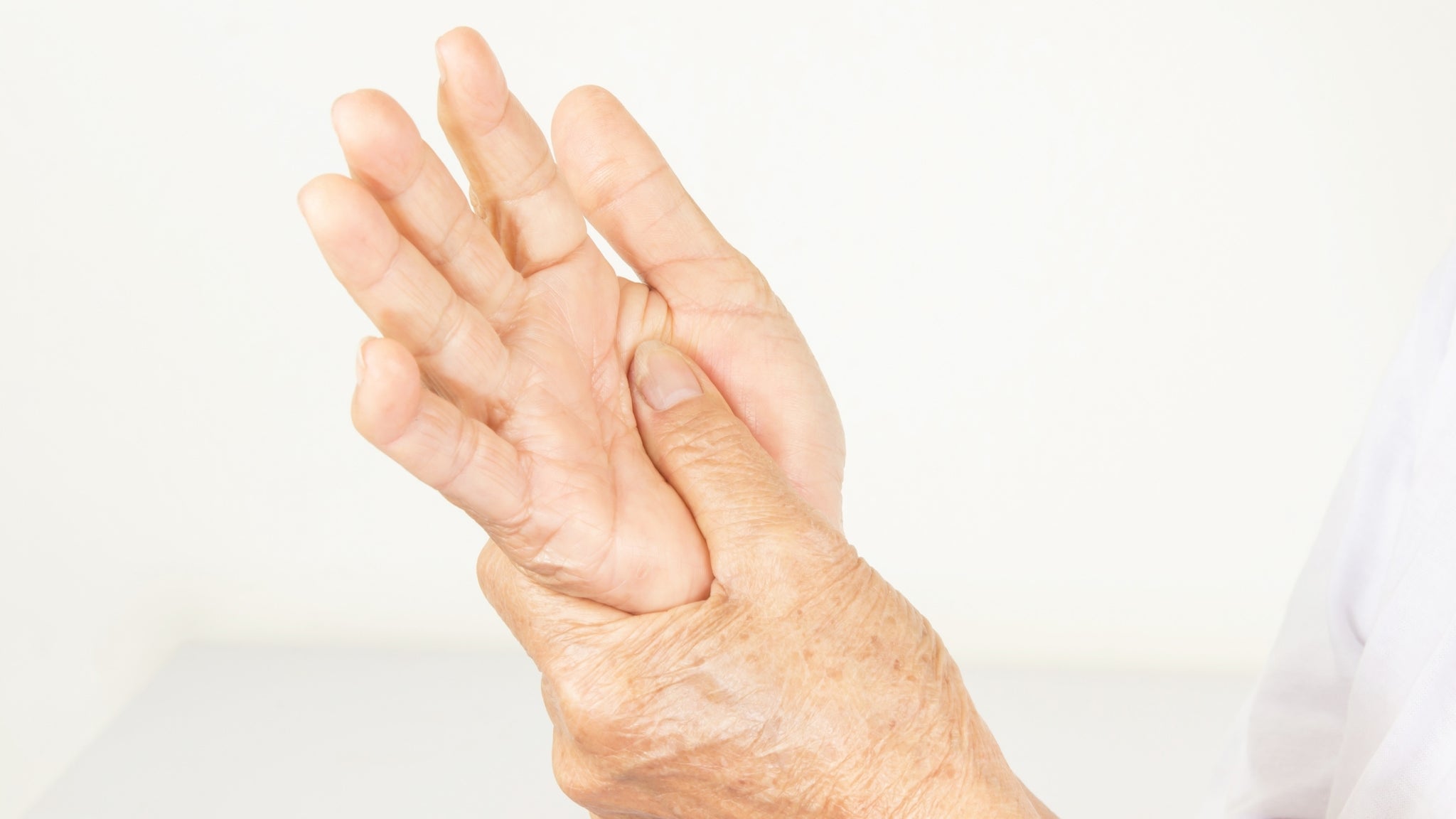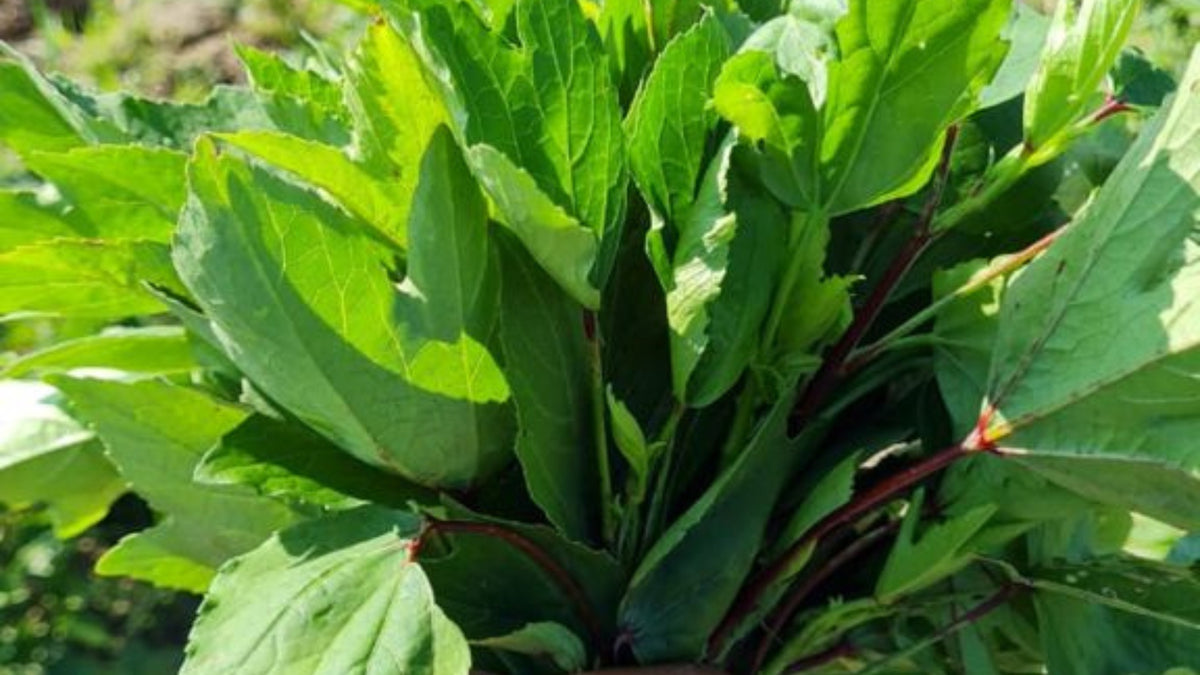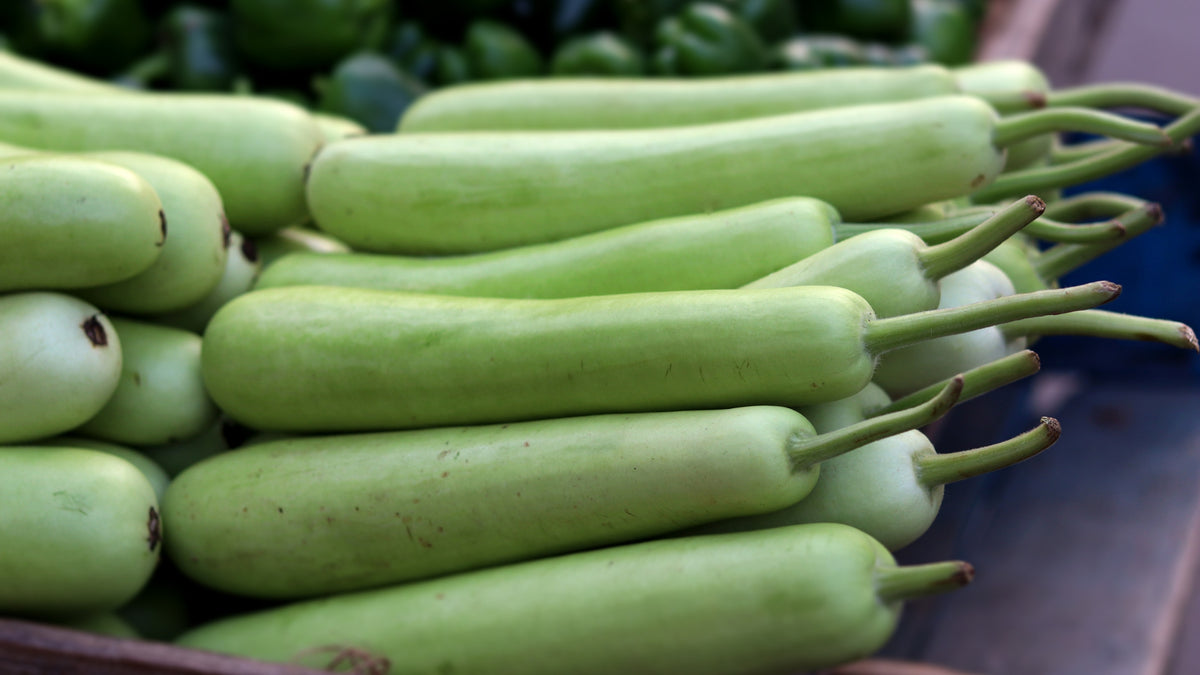
Joint Pain the Two Types

Type One: Amavata
Amavata is a painful condition explained by Ayurveda that has similar symptoms as Rheumatoid Arthritis. Amavata initially manifests as a gut disorder with symptoms of indigestion and loss of appetite. As the condition persists it encroaches all the tissues, bones, muscles, joints, and multiple organs which results in a complex of symptoms.
The condition will continue to progress due to the morbid vata dosha mixed with ama. Ama is an undigested food substance formed in the stomach due to weak or slow slow digestive strength and often causes indigestion.
As the ama enters circulation as improperly digested nutrients it poorly nourishes all the tissues and organs of the body. Since it is undigested, the tissues can take it but cannot metabolize it very well. It is therefore stored in the cells and is neither digested nor flushed out. Owing to the sticky nature of ama, it blocks and clogs the channels of nutrition in the body. This causes a depletion of nutrition to the tissues and organs. As a result, there is multiple tissue damage and wide array of symptoms are manifested.
Causative factors of Amavata
- Viruddha ahara – mutually incompatible foods
- Viruddha chesta – unwholesome lifestyle practices
- Mandagni – long term low metabolism and digestion
- Nischal – sedentary life activities
- Snigdha bhojana vyayama – consuming unctuous, oily, and heavy foods prior to exercise
Preliminary symptoms
In the initial stage’s symptoms appear as slow digestion and indigestion and is just the beginning of dosa morbidity and has not yet settled in the joints.
- Angamarda – pain in body parts, general body ache
- Aruchi – anorexia, tastelessness
- Trishna – thirst
- Alasya – lethargy, weakness
- Gaurava – heaviness of the body
- Jwara – fever
- Apaka – indigestion
- Shunata – swelling of body parts
In the later stages when the condition spreads to the joints, tissues, and organs there are multiple symptoms of tissue and organ damage.
Signs and symptoms of Amavata
- Saruja shopha – painful swelling in the joints of hasta (hand), pada (foot), shira (head and neck), gulpha (ankle), trika (sacrum and coccygeal), janu (knee), uru (thigh, hip).
- Vrishika damshavat peeda – pain mimicking that of a scorpion sting
- Agni dourbalya – sluggish digestion
- Praseka – excessive salivation, nausea
- Aruchi – tastelessness, anorexia
- Gouravam – heaviness of the body
- Utsaha hani – lack of enthusiasm
- Vairasyam – sensation of abnormal taste in the mouth
- Daaha – burning sensation
- Bahumutrata – excessive urination
- Grahani dosha – contamination of intestines
- Apakwa mala – stools comprise of indigested food
- Kukshi kathinata – hardness of abdomen
- Shulam – colic
- Nidra viparyaya – sleep disturbances
- Trishna – thirst
- Chardi – vomiting
- Bhrama – giddiness
- Murcha – fainting
- Hrid graham – feeling of tightness of chest
- Antra kujana – gurgling sounds in the abdomen
- Anaha – flatulence
Type Two: Sandhigata Vata
Sandhigata Vata is another painful condition explained by Ayurveda which has similar symptoms as Osteoarthritis. Sandhigata Vata means the invasion and localization of morbid vata dosha in the joints of the body. The main symptoms are pain, swelling, and impaired mobility.
Causative factors of Sandhigata Vata
Since this disorder is caused by vitiated vata, all the foods and lifestyle activities which cause vata to increase are responsible for Sandhigata Vata.
- Vyayama – excessive exercise
- Apatarpana – excessive fasting
- Prapatana – accident or injury
- Bhanga – bone fractures
- Kshaya – depletion of tissues
- Jaagarat – awake all night
- Veganam cha vidharanat – suppression of natural bodily urges
- Ati shuchi – improper administration of Panchakarma
- Shaityadi – excessive intake of cold foods and activities
- Traasaat – fear
- Ruksha – excessive intake of dry foods
- Kashaya – excessive intake of astringent foods
- Tikta – excessive intake of bitter foods
- Katu – excessive intake of pungent foods
- Vari-ghanagame – cloudy rainy season
Among the causative factors, the contamination of the channels providing nutrition to the bones combined with vata increasing foods and activities is the main cause. In the case of Sandhigata Vata, the vitiated vata dosha gets lodged in the weakened bone tissue and joints.
Asthi dhatu (bone channel) and vata dosha are related to each other in a natural relationship. Thus, pathological increase or decrease of vata has a serious impact and damaging effect on bone tissue more than any other tissue. The depletion of tissues is also a direct cause for the aggravation of vata dosha.
Thus, in Sandhigata Vata there may be direct or indirect depletion of all the tissues, leading to deterioration in immunity and integrity of the body. When the vitiated vata has considerably damaged the bones and joints many complications like immobility, deformity, and crippling are present.
Signs and symptoms of Sandhigata Vata
- Shula – joint pain
- Atopa – sound of crepitus in the joints, looseness of the joints
- Shotha – joint swelling
- Prasarana Akunchanayoho pravritti savedana – painful immobility of the joints
Both Amavata and Sandhigata Vata are two very different types of arthritis understood by Ayurveda and an Ayurvedic doctor will help you understand the correct holistic management.
Products for Joint Pain
Ostikot Tablets balances vata dosha and supports bone health by nourishing and lubricating bones, tendons and cartilage and calming inflammation.
Rhukot Tablets balances both kapha and vata dosha and helps calm inflamed joints and supports the bones and muscles surrounding joints.
Bala Tailam Softgel Capsules and Bala Oil Drops has remarkable support for joint pain, as it helps to nourish the bones, muscles, and cartilage, reduces vata in the joints and nerves, and increases flexibility in the tendons, muscles, and joints. It is famous for all vata conditions including all types of avarana vata conditions.
Original source: Dr JV Hebbar, EasyAyurveda.com
Ayurvedic Consultation
Kottakkal is committed to offering the highest quality Ayurvedic Healthcare. We offer two ways to have an Ayurvedic consultation. 1. Free 15-minute Consultation with our Ayurvedic practitioner, Julie Wardwell for when you need a product recommendation for a basic health problem. 2. In-depth Consultation with our Ayurvedic doctor, Vaidya Vishwanath Guddadar for when your condition is chronic with multiple symptoms.
Disclaimer: These statements have not been evaluated by the Food and Drug Administration. Kottakkal Ayurveda products and information are not intended for use in the diagnosis, treatment, cure, or prevention of any disease. If you have serious, acute, or chronic health problems, please consult a trained health professional. If you are seeking the advice of a trained Ayurvedic professional, call (800) 215-9934 or email us at contact@kottakkal.shop. We will provide you with information to consult with Ayurvedic professionals. Always check with your doctor before taking herbs when pregnant or nursing.
Also in Healing with Kottakkal Ayurveda

Food is Medicine - Organic Gongura Leaf
Gongura, often referred to as Indian sorrel, is a leafy green vegetable packed with an array of health benefits. This vibrant green is a treasure trove of essential vitamins, minerals, and antioxidants.

Food Is Medicine - Organic Bottle Gourd

Boosting Energy and Rejuvenation with Narasimha Rasayana
Narasimha Rasayanam is an herbal jam formulated with base ingredients of butter, honey, and milk. This time-tested remedy is believed to promote balance within the body's three doshas, vata, pitta, and kapha and supports a range of health concerns. From supporting physical strength and hair health to promoting rejuvenation and cognitive function, Narasimha Rasayanam offers a multifaceted approach to well-being.


Kottakkal Support